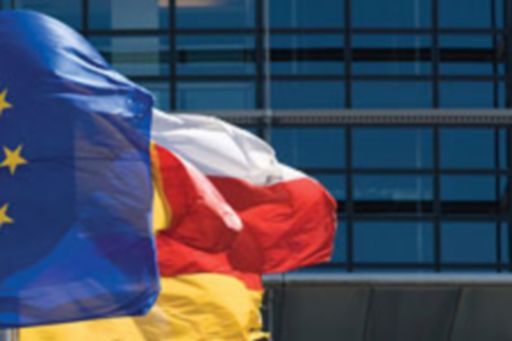Euro Tax Flash from KPMG's EU Tax Centre
Euro Tax Flash from KPMG's EU Tax Centre
On September 19, 2016 the EU Commission announced that it was opening an in-depth investigation into tax rulings granted by Luxembourg to GDF Suez.

>> Go back to Euro Tax Flash homepage
EU Commission opens in-depth State aid investigation into tax treatment of GDF Suez (Engie) by Luxembourg
State aid –tax ruling practice – Luxembourg – Decision to open in-depth investigation
On September 19, 2016 the EU Commission announced that it was opening an in-depth investigation into tax rulings granted by Luxembourg to GDF Suez (see press release). The EU Commission considers that these rulings might have given an unfair advantage to GDF Suez in violation of EU State aid rules and has decided to initiate a formal investigation procedure, in order to validate its preliminary view. The EU Commission will adopt a final decision at the end of the formal investigation. This examination is the result of the EU Commission’s wider investigation into the Member States tax rulings in December 2014, following the LuxLeaks scandal.
Background
The procedure is one of a series of State aid investigations recently launched by the EU Commission and the fourth one focusing on Luxembourg, adding to investigations into Fiat, Amazon, and McDonald’s tax affairs. Tax rulings have increasingly become the center of attention and the automatic exchange of tax rulings between Member States is one of the many EU initiatives in the areas of tax transparency (see ETF 258), and tackling harmful tax competition between Member States and tax avoidance.
Since December 2014, when it extended its examination to all tax rulings issued by Member States, the EU Commission has published several negative decisions in respect of rulings issued by Luxembourg and the Netherlands in October 2015 (see ETF 262), Belgium in January 2016 (see ETF 271) and more recently Ireland (see ETF 300).
Preliminary findings
The EU Commission reviewed two similar financial transactions between four GDF Suez group companies in Luxembourg. Two companies, LNG Luxembourg and Electrabel Invest Luxembourg lent money to GDF Suez LNG Supply and GDF Suez Treasury Management respectively.
Under rulings issued by the Luxembourg tax authorities in relation to these loans, the loans carried zero interest but the borrowing companies were able to provide for interest payments in their accounts, thereby reducing their taxable profits. No interest payments were made to the lenders and the loans were then subsequently converted into company shares in favor of the lending companies, incorporating the value of the interest payments provided for by the borrowing companies. This value was treated as a dividend-like payment and accordingly not taxed in the hands of the lenders.
The press release outlines the EU Commission’s preliminary view that these tax rulings provide an inconsistent tax treatment of the same transaction as they treat the transactions as both debt (in the borrowers’ accounts) and equity (in the lenders’ hands). Consequently, the transactions give rise to double non-taxation on Luxembourg profits for both the lending and borrowing companies in each case. The EU Commission’s preliminary assessment is that these tax rulings may constitute a tax advantage, which was not available to other companies subject to the same rules, and therefore amounted to illegal State Aid.
Next steps
As part of the standard procedure in State aid investigations, the EU Commission will publish a non-confidential version of this preliminary decision. The opening of an in-depth investigation gives interested third parties and the Member States concerned an opportunity to submit comments, which does not prejudge the outcome of the investigation. There is no legal deadline to complete an in-depth investigation and its actual length depends on many factors, including the complexity of the case, the information provided and the level of cooperation from the Member State concerned. The EU Commission will adopt a final decision at the end of the formal investigation.
EU Tax Centre Comment
In the GDF Suez case, the focus of the EU Commission is shifting from allegedly unjustified transfer pricing or allocation of profits, to internal mismatches and a supposed inconsistent application of national law, leading to double non-taxation. In this respect, the investigation should be seen in the context of the EU Commission’s ongoing examination of the McDonald’s case (see ETF 264), which also involves tax rulings granted by Luxembourg and leading to the double non-taxation of the US branch of a Luxembourg company. Depending on the details of the decision, still to be published, interesting parallels may also be drawn with the OECD BEPS project and the EU Anti-Tax Avoidance Directive, although the latter deals with hybrid mismatches in a cross-border (as opposed to purely domestic) context.
Although not surprising, it should also be noted that the present investigation concerns a European headquartered company, further to the recent assertions by the US Treasury Department that the EU Commission was unfairly targeting US companies. This investigation is in line with Commissioner Vestager’s statement in front of the European Parliament earlier this year that particular attention had been given to rulings granted to multinational companies and “national champions”, as part of the EU Commission’s general review of national tax rulings (GDF Suez is one of the main French electric utility companies).
Should you have any queries, please do not hesitate to contact KPMG’s EU Tax Centre, or, as appropriate, your local KPMG tax advisor.
Robert van der Jagt
Chairman, KPMG’s EU Tax Centre and
Partner, Meijburg & Co
Barry Larking
Director EU Tax Services, KPMG’s EU Tax Centre and
Director, Meijburg & Co
